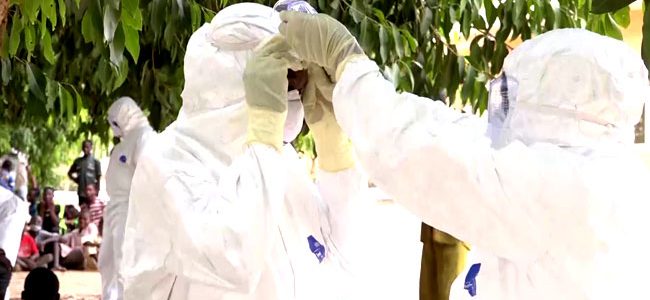
On February 27, the first case of COVID-19 was confirmed in Nigeria. In no small way, the country was shaken, as many had prior to that time expressed confidence that the virus could not come into Nigeria. All of a sudden, Nigerians woke up to the reality that it was indeed here, and the memories of the Ebola virus the country recently battled with as well as the Lassa Fever to which it had lost at least 100 lives in the year alone, rebounded.
However, when the Italian man who was the index case was contained in the infectious diseases facility, it seemed for a while that all was well, until March 7, when the first Nigerian tested positive. For those who had thought it was a disease the black man was immune to, this shattered their confidence. Yet again, a few days later, the Nigerian tested negative. Social media was agog with renewed confidence and “I-told-you-so’s” – COVID could not stay in the Nigerian blood. This was short-lived though, as on March 17, another Nigerian tested positive, this time with four more following the next day. Indeed, as they say, the rest is history, since today we have counted more than 11, 000 confirmed cases, some of which have been discharged and some of which have died.

We typically mark the 100-day milestone in governance with a recount of the achievements. For COVID-19, June 5 marked that milestone. COVID-19 came at a time when Nigerians were just easing into the new year and reaping the remnants of the Valentine celebration. About a month after the index case, we had a nationwide lockdown imposed, airports closed, flights cancelled- both international and local and borders shut and suddenly. We saw things happen that we did not think possible- for one, that people would not be able to travel outside the country, regardless of wealth, political class or social status. We saw churches and entertainment centres, schools, NYSC camps and private sector workplaces shut down. Nothing like it had ever been experienced, but thankfully, we had seen other nations do it, so we were not the first in a line of countries that were shutting down.
With COVID-19, we saw quite a number of negatives. Apart from the spread of the virus and the deaths that accompanied, we saw crashing oil prices as a result of low global demand and the Saudi Arabia-Russia oil war. We saw barges stranded on open seas with no buyers and crude oil barrels with no one to off-take. We also saw a devaluation of the naira against the dollar and harsher economic conditions, especially for those in the informal sector. We saw crime rates rise and a period of terror emerge from organized criminals and the infamous One Million Boys. We saw the rise of domestic violence and law enforcement brutality. We also saw the spread of false information about treatments for and origins of the virus and we cannot forget too, the indiscriminate hike in prices of protective equipment and hand sanitisers.

Yet, we must also count the positives that the virus brought with it. For one, the health sector received the N500 billion intervention fund set up by the federal government, an intervention that prior to this time might never have been possible. Following it up, the Central Bank Of Nigeria rolled out a $100 billion credit support scheme for the health sector and a N50 million targeted credit facility for SMEs. There was also the life insurance scheme launched by the government for frontline health workers. A few weeks ago, we also witnessed the N2-trillion stimulus for two major Nigerian airlines. There were very generous goodwill donations from individuals and organisations as well as support from the World Bank and IMF while Chinese billionaire, Jack Ma donated testing kits to Nigeria. Various non-profit organisations reached out to rural communities and organised associations provided palliatives for their members. We essentially saw a resurgence of charitable gestures across the country. There was innovation too, as Nigerians began to make re-usable cloth masks, which soon became the go-to option for many.
With the formal sector, there was a splurge of webinars, with various individuals and organisations taking up the mandate of sharing knowledge. Entertainers too were not left out as they launched online shows, Instagram Live engagements and did the popular “giveaways” for fans. Workplaces quickly began to adapt and use online tools to work from home, public education adopted radio and television learning while private schools went online. Soon the courts began to hold virtual hearings for important matters, since justice could not be put on hold. New laws, regulations and orders were also churned out at breakneck speed. VAT and other tax reliefs were put in place, moratoriums on loans were extended and interest rates were reduced and we began to for a moment look away from oil and to gas and renewables as energy sources.
In all, the first 100 days of Covid-19 were eventful- we experimented as a nation with things we had never done before; we fought, we grew, we endured just as the virus has kept us at home- not just in our houses, but within our country, where we have been forced to fix the ills we have ignored for so long and it has certainly strengthened the synergy between the public and private sector.
For COVID-19’s first 100 days in office, it has done quite a lot. It is my hope that the positive effects are sustained, and that for the negative ones, we make a swift rebound.
Credit: The Nation
